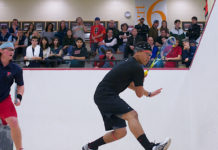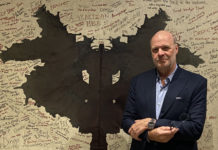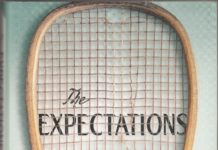In 1995 Greg Zaff, former professional squash player, had an idea. What originated in a graduate term paper ultimately launched an after-school program combining squash practice with academic tutoring—the first of its kind.
The original SquashBusters “office” was Zaff’s apartment, the program served twenty-eight students, and it inspired the creation of several other like-minded institutions.
Today there are fifteen urban squash programs across the country, serving over 1,400 students, united under the umbrella of the National Urban Squash Education Association (NUSEA), an organization headed by Tim Wyant and Sage Ramadge. This year, at the Tournament of Champions and over Martin Luther King, Jr. weekend, the organization is celebrating a milestone: its twentieth anniversary.
In recognition of that accomplishment and the lives that these various programs have touched, changed, and bettered, Squash Magazine delves into the urban squash timeline: a new student, five-ten-fifteen year veterans, and one who was there in the beginning, and who, along with NUSEA, is marking a milestone in urban squash.
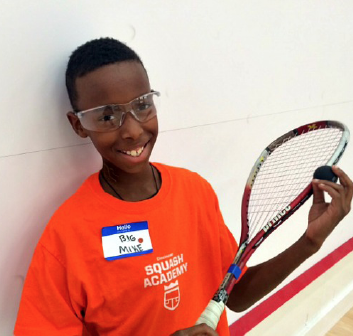 MIKE WHITE
MIKE WHITE
Program: Cincinnati Squash Academy
Year Started: 2014
School: Hays Porter Elementary, 5th Grade
Age: 10 years old
Eight weeks into his tryout at the Cincinnati Squash Academy (CSA), Mike White started to realize that the urban squash and education program is about more than just squash. “The Squash Academy can help me achieve a good education and allow me to attend a good college,” White says. “The Squash Academy can also help me get good grades and help me with my school work.”
The newly launched Cincinnati Squash Academy opened its doors in September. The program has a dedicated urban squash and education facility at the Emanuel Community Center in the “Over-the-Rhine” neighborhood of Cincinnati, Ohio. Emanuel is less than a mile from Hays Porter Elementary School, where twelve students from the fourth and fifth grades will make the team, including students from three other community schools. White demonstrates the kind of early commitment that is required to be successful in urban squash. “Mike hasn’t missed a single practice and has worked hard. He is so enthusiastic and is taking it all in so far,” says Vir Seth, a St. Lawrence ‘14 graduate and Squash Director at CSA. Once he has made the team, White’s experience will involve a lot of squash. “I like that every time I come to practice, I learn something new about the sport.”
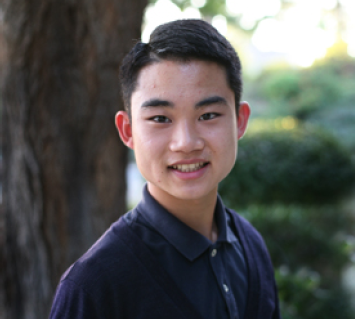 KEVIN CHUNG
KEVIN CHUNG
Program: Access Youth Academy
Year Started: 2010
High School: The Preuss School UCSD, 12th Grade
Age: 17 years old
Kevin Chung, a senior in high school at the Preuss School UCSD and five-year veteran of the Access Youth Academy in San Diego, credits the urban squash program for his changed outlook on academics and collegiate squash ambitions.
“Everything began to change when I started Access Youth Academy. My freshman year of high school was not my strongest academic year: I had a 1.88 GPA—I used to hang out with the wrong crowd and was making bad decisions, like not doing my homework—but I raised it to a 3.50 GPA,” Chung shared, citing Access’s tutoring and mentoring programs as the impetus for his changed homework habits.
Chung is actively working toward recruitment or walk-on positions at schools like Wesleyan and Hamilton, as well as Rochester and Hobart, among many other like-minded colleges. Access Youth has a three-phase approach to their students’ academic lives: focus on improving their GPAs, high school and college retention and graduation rates, as well as continued support in career guidance after college.
Access Youth, like many of its fellow NUSEA programs, takes on a familial model for their students. Chung says, “Everyone in the program cares about each student. The program has taught me many valuable life lessons. When I was a freshman I let people’s words and actions get to me too easily. After playing squash for these last six years, I’ve learned that I have to move on when my emotions get in the way, because life keeps going and I can always learn from my past mistakes and improve.”
In sixth grade, when Chung was first recruited for the Access program, he learned that squash was “like racquetball and tennis combined.” Chung had had some earlier experience with racquet sports, playing tennis for two years before joining Access Youth’s squash team, so he easily adapted to the hand-eye coordination required for the fast-paced sport.
“I have never regretted a moment with this program,” Chung said.
“Access has become my second family.”
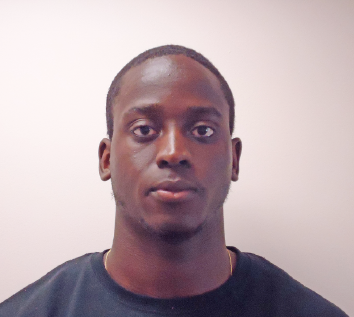 LONNIE GIBBS
LONNIE GIBBS
Program: StreetSquash Harlem
Year Started: 2000
High School: Thurgood Marshall Academy
College: Wesleyan University Class of 2011
Age: 25 years old
In 2000, Lonnie Gibbs, then an eighth grader, joined StreetSquash when he transferred to Thurgood Marshall Academy in Harlem. “I had friends on the team, and when I tried out, I fell in love with squash immediately.”
“StreetSquash changed everything for me,” Gibbs shared, “I always had goals, and the experience at StreetSquash gave me a direction. I knew I was going to go to college, but I don’t know if I would have ever learned about Wesleyan without Joy Rivera and Leah Brown.” Both Rivera and Brown are StreetSquash staff members and also Wesleyan alumni.
Gibbs graduated first in his class from Thurgood Marshall, played for four years on the Wesleyan squash team, and was made captain his senior year.
Gibbs deepened his love for squash through summer experiences at Harvard and Princeton Squash Camps, and the Universal Squash Camp in England. “At Harvard Squash, I first realized I had potential to do well,” said Gibbs. One of the coaches who encouraged him was Pete Karlen, a Harvard squash player who would later become a Squash Director at StreetSquash. “Going to England was my first time flying on an airplane, and visiting a different country. I lived with an English family and loved it. The whole experience pushed me to another level with squash. When I got back from England, I committed myself to the goal of playing college squash at Wesleyan.”
At Wesleyan, Gibbs also played varsity football, but “everyone knew that squash was my first sport.” After graduating, Gibbs, who majored in math, taught at Promise Academy Charter School in Harlem for two years, before joining StreetSquash Newark as Academic Director in 2013.
“Working at StreetSquash Newark was great. I saw behind the scenes how an organization runs and the kids saw me as a role model; someone to look up to. I lived in Newark when I was younger, so I could relate to their experience in a different way.” When Gibbs left the program in September 2014 to study nursing full-time, it reminded him of the feeling he still has for Rivera, his first squash coach at StreetSquash. “The kids gave me so much love when I left. I will always remember that.”
“I’m so proud to be a part of StreetSquash, and a part of urban squash’s early years,” said Gibbs. “It’s a story I love to tell.”
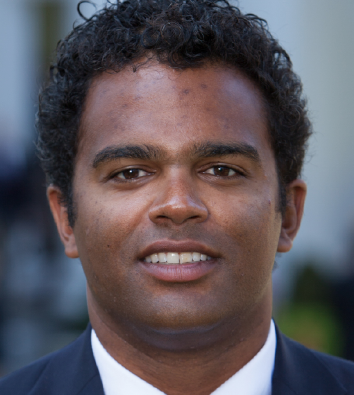 GUILLERMO MORONTA
GUILLERMO MORONTA
Program: SquashBusters Boston
Year Started: 1996
High School: Tabor Academy
College: Bates College Class of 2006
Age: 32 years old
Guillermo Moronta, current Assistant Director of Admission at the Belmont Hill School in Massachusetts and member of one of SquashBusters’ first classes nearly twenty years ago, believes that his experience with urban squash is responsible for his success, saying, “SquashBusters, its coaches and mentors are largely to thank for what I have achieved—a college degree, a beautiful wife and two daughters, a job that I love, and the first in my family to be a homeowner.”
“These are big achievements for a poor immigrant boy from the Cambridge projects. My only regret is not being more appreciative of my mentors and coaches in my teenage years. The only way I can express my gratitude to urban squash is to coach and mentor current and future urban squash students and to guide them and present them with the same opportunities I was afforded.” Moronta, who initially played three sports—football and baseball, including squash—fully committed to the SquashBusters team when program founder Greg Zaff and Chris Lynch went to his house one afternoon to assess his interest after a series of missed practices. “The level of commitment they showed by going to my house was enough for me to give up football and baseball. It was hard, and my decision was not popular among my friends, but I stuck with it and my life was never the same.”
Now an alum nearly twenty years out, Moronta fully commits himself to supporting fellow urban squash students. “Working in the Office of Admission at Belmont Hill has given me the chance to give back. For the past three years I served as a liaison and advocate for CitySquasher, Karina Lazaro, while she attends Tabor Academy. More recently, I did a mock interview at SquashBusters Lawrence with a girl interested in applying to Brooks, Governors and Pingry.” In the next few years, Moronta hopes to enroll the first urban squash players at Belmont Hill, where, ironically enough, Greg Zaff is an alum.
Moronta played squash at Bates for all four years, worked at SquashSmarts and the Cynwyd Club in Philadelphia after college, and currently co-coaches the varsity and junior varsity teams at Belmont Hill. Though he finds it difficult to find time to play, Moronta credits squash for his view of the world. “I was far from great, and I did not always win, but I was always happy because I was in my best physical shape and was the best competitor I could be. It took me awhile to figure this out, but now I apply the same work and effort to everything I do—from teaching and coaching, to advising and parenting.”


